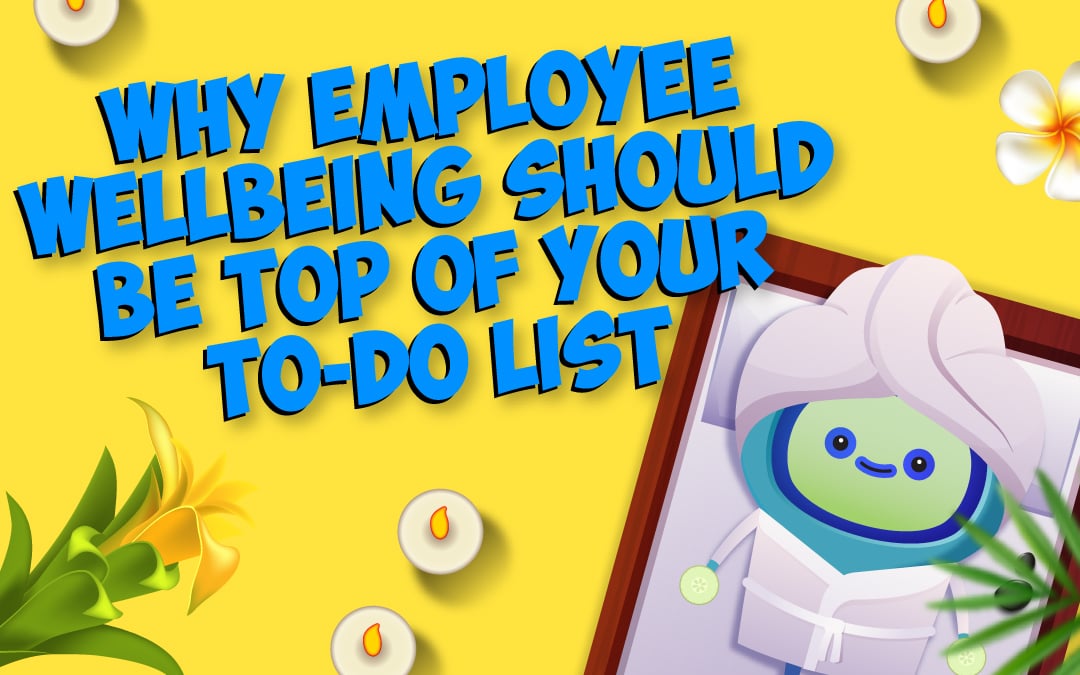It’s a busy day in the office, and Fern is hard at work. She’s been taking advantage of eLearning courses lately, and upskilling on things she never knew before. As a result, her latest project is flying. She’s able to identify problems and solve them as she goes. She’s even suggested ways to prevent those issues in future.
In contrast, her colleague, Alex, hasn’t developed himself. He just escalates any issues to his team leader, which causes delays and frustration for both of them. Alex often wonders why he’s passed over for promotion and hasn’t realised that upskilling himself would help towards that.
But it’s not entirely Alex’s fault. His manager is partly to blame here. They should have offered Alex the chance to upskill. But what is upskilling? It’s when all staff are given the time and resources to learn new skills and boost their knowledge. This is essential to keep teams happy, hang on to the best employees and make sure the business is ready for whatever is thrown at it.
According to the World Economic Forum, by 2025, nearly three-quarters of companies will be offering their staff the chance to learn new skills or brush up on existing ones. Things are finally moving in the right direction! Is your business one of them? Ensuring employees can upskill will help your business adapt and thrive as the world around changes.
Let’s have a look at some of the reasons why upskilling your employees could be one of the smartest moves you ever make as a leader.
Upskilling builds resilient, knowledgeable teams
Remember the dark days of lockdown? An unexpected event like that is a great example of why an upskilled team is important. Knowledgeable staff were able to roll with the punches, but a substantial portion of people struggled to carry on working. Look at the digital world – some reports suggest that machines will be doing half of all our admin tasks by as early as next year. But if you give your team the chance to upskill on new tech and how to use it, you’re ensuring that they can work alongside them, rather than be replaced by them.
It isn’t just about learning to code or handle new software, though. Upskilling is about developing a mindset that’s open to change and encourages your people to want to learn. When they realise that they have the skills to adapt, they will do so. And they’ll face any new challenges with confidence.
It boosts employee satisfaction and morale, too
You probably know the feeling of being stuck in a dead-end job, with no prospects, with the Sunday night dreads. And while there could be other factors, it’s true, some people just don’t get challenged enough in their roles. Give employees the chance to learn and grow, and you’re essentially saying to them that they have a future in your company and that you believe in them. Investment in your team doesn’t go unnoticed. Employees who feel their company cares about their development are usually happier, more engaged and more motivated.
When they’re learning new things, work becomes more interesting and challenging – but in a good way. Employee happiness is good for business, too. Happy employees are more productive, more creative, and better at solving problems, just like Fern from earlier. They don’t mind going the extra mile. So, when you’re boosting their morale by supporting their upskilling, you’re making the whole business stronger.
Better employee retention
Did you know that replacing an employee can cost anywhere from half to two times their annual salary? So, from a business point of view, when someone decides to move on, that’s a lot of cash walking out of the door. However, if you invest in upskilling, you’re giving staff a big reason to stick around.
Consider it from their point of view. You’re learning new skills, taking on challenges, and seeing a clear career progression path and growth in your company. Why would you want to leave? As mentioned earlier – upskilling shows employees you’re committed to their future.
It’s not just about stopping people leaving though. By supporting them with upskilling prospects, you’re building a strong team of loyal, committed employees who are invested in the company’s success, because it’s also their own.
Increased ROI
We know, money is a problem in most businesses. You’re probably thinking that you can’t afford to splash out on more learning. Yet another expense at a time when the coffers aren’t exactly overflowing. However, it’s actually a pretty smart investment. It’s reckoned that on average, two-thirds of employers see a return on their upskilling investment within a year.
It’s much more cost-effective to upskill a current employee than it is to hire someone new. You’re building on the knowledge and experience that they already have rather than starting from scratch. And you’re avoiding all those nasty costs on recruitment, onboarding and all the teething problems that you’ll inevitably have with them.
Beyond money saving, though, employees who have a broader skill set can often take on more responsibilities or move into new roles when there’s a business need for them. This flexibility can be a huge asset, especially if you’re running a small to medium business where everyone wears multiple hats.
You can attract new talent
Despite what you might think, the best talents aren’t always on the hunt for the biggest wage. They know that the opportunity to grow and develop is just as important, if not more, important than a huge paycheck. After all, when you love what you do, are you truly working?
Become the sort of employer that invests in its people and word will get around. It’ll make you a much more attractive prospect for job seekers, and you’ll have your pick of top talent.
Offering upskilling opportunities sets you apart. It shows that you’re forward-thinking, and committed to helping employees succeed. This is especially important to the youth entering employment, who prioritise personal development and career growth. It sets them up for a bright future. Additionally, the people you bring in won’t be the ‘I just want a job’ crew. They’ll already be engaged, productive and innovative because they really want to be successful with you.
By now, you’re probably sold on the idea of upskilling your staff. But you might not know how to get started. No problem. Here are 7 quick tips to get you up and running.
1. Perform a skills gap analysis. Simply put, figure out what skills your team has already, and what they’ll need in the future. Hey presto – you now know what you should provide.
2. Make learning part of your company culture. Encourage your team to be curious and want to learn and improve, and support them.
3. Offer training. It doesn’t have to be classroom-based – you can upskill from eLearning courses much more quickly and cheaply. But there’s also on-the-job training and mentoring, too.
4. Set clear goals and track the progress towards them. That way, you can keep everyone motivated, and on track and ultimately see what impact this upskilling investment is having.
5. Lead by example. Pretty obvious, right, but if employees see you making time for learning, they’ll undoubtedly want to learn too. It’s a strong message to send.
6. Make the upskilling relevant. Focus on skills that will have a direct impact on their work goals (and your business goals). Learning for the sake of it, while useful in general, isn’t going to do the business any good.
7. Encourage knowledge sharing. Well, why not? If they teach someone else what they’ve learned, this keeps the upskilling cycle turning. It’s vital!
Upskilling is a powerful tool to create a more capable, confident and committed workforce. Investing in employees’ skills isn’t just helping them, it’s helping your business, too. From building more resilient teams to improving morale, retaining people and attracting other top talent, there are many clear benefits to upskilling, as we’ve seen.
It’s not difficult to get started upskilling them, either. You just need to conduct a skills gap analysis, create a learning culture and provide training options, including leadership and mentoring. You should also lead by example, focus on skills that align with your business goals and encourage knowledge-sharing between employees. Oh, and don’t forget to keep track of their goals, too, so you can point them un the right direction if things start to go awry.
Having a team who are skilled and ready to tackle anything thrown at them is priceless for a business. Invest in upskilling employees today, because they will thank you for it, and so will your bottom line.
Discover how you can upskill in minutes with iAM Learning
If you're keen to upskill in minutes, not hours, why not check out our unique, engaging eLearning content? Our bite-sized courses cover everything from leadership and people management to health & safety and compliance! Try iAM Learning for yourself - get started today!




